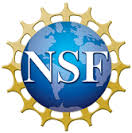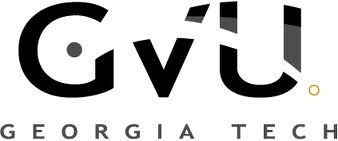


Please note that the deadline for submissions to the 2015 Conference has been extended to March 1 (midnight PDT).
The Third Annual Conference on Advances in Cognitive Systems will take place May 28-31, 2015, at Georgia Institute of Technology in Atlanta, Georgia, USA. The main conference will be held on May 29-31 and related workshops including the student workshop and a workshop on Goal Reasoning will be held on May 28. An independent workshop on Computational Models of Narrative will be co-located with the Advances in Cognitive Systems conference.
The goal of the Conference is to bring together researchers with interest in building cognitive systems that are distinguished by a focus on high-level cognition and decision making, reliance on rich, structured representations, a systems-level perspective, use of heuristics to handle complexity, and incorporation of insights about human thinking. The meeting provides a venue for dissemination of research results pertaining to the original, yet unanswered, questions of Artificial Intelligence: to produce computational artifacts that reproduce a broad range of human cognitive abilities.
The Conference welcomes work on any topic related to the representation or organization of complex knowledge structures, their use in multi-step cognition, or their acquisition from experience or instruction. Some functional capabilities that arise in this context include, but are not limited to:
We especially encourage participation from researchers working in these and other areas who are interested in complex cognition, human-level intelligence, and related topics.
Submissions can be a maximum of 16 pages in length. All submissions should be formatted according to instructions provided at http://www.cogsys.org/format/, which provides Latex and Word templates.
A subset of papers accepted for oral presentation at the conference may also be invited to appear in the online journal, Advances in Cognitive Systems. All submissions to the main conference should be through EasyChair (https://easychair.org/conferences/?conf=acs2015).
Each submission should state explicitly the problem or capability it addresses, describe its response to this problem, make claims about this approach, and provide evidence in support of these claims. Every paper should also discuss related efforts, examine limitations of the reported work, and outline plans for future research.
Because the conference aims to encourage research toward a broader understanding of intelligence, its criteria for determining contributions will differ from those of other conferences. Progress may take many forms, including demonstrating new functionality, integrating different facets of intelligence, presenting a novel approach to an established problem, explaining complex cognition in humans, and formally analyzing a difficult new task. We also welcome submissions on new problems or testbeds that challenge existing approaches.
Each submission will be assigned to multiple referees who will evaluate the paper for its contribution to understanding cognitive systems, clarity of claims about this contribution, convincing evidence in support of those claims, and cogent presentation of its ideas to readers. We encourage authors to examine the review form before drafting their manuscripts to ensure that their submissions address all of the dimensions on which reviewers will evaluate them.
The conference aims to be as inclusive as possible while still fostering innovative research on the computational nature of intelligence. The conference FAQ page (http://www.cogsys.org/faq/) attempts to clarify the scope of the event. Authors who have questions about whether their research is appropriate for the meeting should contact the Program Co-Chairs, Ashok Goel (goel@cc.gatech.edu) and Mark Riedl (riedl@cc.gatech.edu), for additional information.
National Science Foundation

Microsoft Research

Georgia Tech GVU Center

Georgia Institute of Technology
